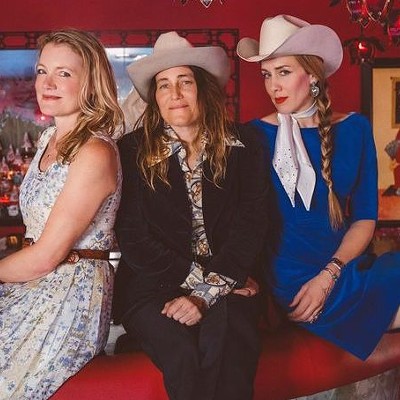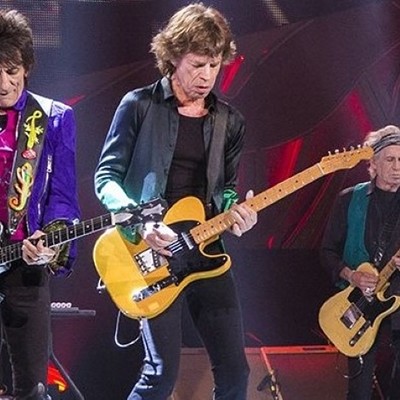Support Us
Houston's independent source of
local news and culture
account
- Welcome,
Insider - Login
- My Account
- My Newsletters
- Contribute
- Contact Us
- Sign out
Girl Talk: "Me Wanting To Interact With The Music I Really Like"
Valerie Alberto June 3, 2010 9:00AM
[
{
"name": "Related Stories / Support Us Combo",
"component": "11591218",
"insertPoint": "4",
"requiredCountToDisplay": "4"
},{
"name": "Air - Billboard - Inline Content",
"component": "11591214",
"insertPoint": "2/3",
"requiredCountToDisplay": "7"
},{
"name": "R1 - Beta - Mobile Only",
"component": "12287027",
"insertPoint": "8",
"requiredCountToDisplay": "8"
},{
"name": "Air - MediumRectangle - Inline Content - Mobile Display Size 2",
"component": "11591215",
"insertPoint": "12",
"requiredCountToDisplay": "12"
},{
"name": "Air - MediumRectangle - Inline Content - Mobile Display Size 2",
"component": "11591215",
"insertPoint": "4th",
"startingPoint": "16",
"requiredCountToDisplay": "12"
}
,{
"name": "RevContent - In Article",
"component": "12527128",
"insertPoint": "3/5",
"requiredCountToDisplay": "5"
}
]
A few days before Girl Talk's Summerfest show this Saturday, Rocks Off took some time to chat with the mash-up maestro - who refuses to call himself a DJ - about his biomedical engineering degree, the much-anticipated follow-up to 2008's Feed the Animals and Super Happy Fun Land.
Rocks Off: You earned a biomedical engineering degree from Case Western Reserve and went on to become a tissue engineer. Why did you quit?
Girl Talk: I've always been actively involved with music, starting at the point when I was 14 or 15, starting bands with friends. It was never anything that was intended to be a profession or something to actually make money. All the projects were very specific and underground and not really geared toward having much success - just kinda doing it for fun.
So when I was in college studying tissue engineering is basically when I started doing Girl Talk. It was over the summer or during breaks when I would tour on the side. I was pretty much studying all then time, and when I could get a minute or two, I'd be fiddling around with music. The music thing was always something I always pushed as much as possible and did as best I could.
But I did it really for six years really without playing for an audience of more than 50-100 people, and I thought I was doing well at that time.
Then when I put out my third album in 2006, it just kind of blew up. Music has always been my passion and something I've always been excited about, but not something I ever wanted to go to school for or make into a career. And after the album took off, it turned into this thing where I was working a day job and literally every Friday and Saturday, flying out to do shows and basically taking days off and constantly working on music or playing shows.
Things just kept building up, and after about a year of doing that, it got to the point where I just had to choose one or the other. I was getting offered gigs in Europe or Australia, and I just had ten vacation days at the office. It was kind of becoming a headache. At that point it was just kind of the obvious pick. Doing music for a living was nothing I ever dreamed of as a possibility, so I ended up quitting the job then.
RO: At your ACL show last year, you had huge video screens, along with tour T-shirts that said, "I am not a DJ." If you're not a DJ, what are you?
GT: You know, I'm comfortable with people calling me whatever they want. I've always just compared myself to a producer. In doing these albums or live shows, the point for me was never really to play other people's music - it was to was to try and take other people's music and make something new out of it. That's always been the goal.
Especially when I was getting going in those early days, it's not like I ever really played in a dance club or ever played in a DJ booth or with people spinning records. I always played with live bands. You know, the first time I played in Houston was at Super Happy Fun Land. That's the sort of places I'd play across the country. You know, more underground spots I'd play with bands, whether it be an electronic band or a hip-hop group or rock group.
The point was always to get up there and try to remix other people's music but to try and make something original out of it and present it as new music based on other people's stuff. And then once I started blowing up a little bit more, I started getting offers like, "Can you come DJ at my club for three hours?" I'd never played a show over 20 minutes in my life at that point. And I kept getting all these offers to play at all these dance nights at clubs. It was so far from what the project actually stemmed from. That's kind of why I made those shirts - as a joke.
KEEP THE HOUSTON PRESS FREE...
Since we started the Houston Press, it has been defined as the free, independent voice of Houston, and we'd like to keep it that way. With local media under siege, it's more important than ever for us to rally support behind funding our local journalism. You can help by participating in our "I Support" program, allowing us to keep offering readers access to our incisive coverage of local news, food and culture with no paywalls.
Valerie Alberto
Contact:
Valerie Alberto
Trending Music
- How Much Longer Can Classic Rock Rule the Roost?
- Houston Concert Watch 4/24: Rolling Stones, Bad Bunny and More
- Top 10 Butt-Rock Bands of All Time
-
Sponsored Content From: [%sponsoredBy%]
[%title%]

Don't Miss Out
SIGN UP for the latest
Music
news, free stuff and more!
Become a member to support the independent voice of Houston
and help keep the future of the Houston Press FREE
Use of this website constitutes acceptance of our
terms of use,
our cookies policy, and our
privacy policy
The Houston Press may earn a portion of sales from products & services purchased through links on our site from our
affiliate partners.
©2024
Houston Press, LP. All rights reserved.




